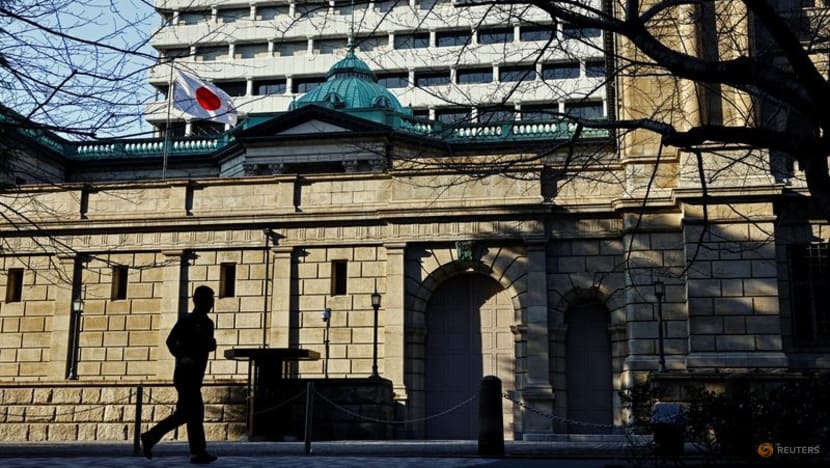BOJ to raise interest rates again in Q4, possibly in October, say economists: Reuters Poll

A passerby walks past in front of the Bank of Japan headquarters in Tokyo, Japan January 23, 2025. REUTERS/Issei Kato/ File Photo
TOKYO :The Bank of Japan will raise its key interest rate by at least 25 basis points again later this year, according to nearly two-thirds of economists in a Reuters poll, up from just over half a month ago.
While news of recent weakness in the U.S. job market has renewed bets for a Federal Reserve interest rate cut next month, 70 per cent of analysts in the poll said that alone won't delay the Japanese central bank's push for slightly tighter monetary conditions.
Although the BOJ has been under pressure to raise rates after more than three years of consumer inflation exceeding its 2 per cent target, it has been wary of doing so, partly due to concerns about U.S. tariffs damaging economic growth.
In the August 12-19 poll, a 92 per cent majority of economists, 67 of 73, forecast no change to interest rates at the BOJ's next policy meeting in mid-September.
However, 63 per cent, 45 of 71, expect the central bank to raise base borrowing costs to at least 0.75 per cent from 0.50 per cent next quarter, an increase from 54 per cent in last month's poll.
Of 40 economists who specified a month for when the BOJ will next hike rates, October was the top choice at 38 per cent, followed by 30 per cent for January next year and 18 per cent this December.
"In October, the BOJ would be able to respond after assessing the direction of U.S. monetary policy and political developments in Japan," said Hiroshi Namioka, chief strategist at T&D Asset Management.
The BOJ could make decisions more easily in October, since its quarterly outlook report will be published that month and the policy meeting will take place after the branch managers' meeting, Namioka said.
Financial markets still are pricing in one further quarter-point BOJ interest rate hike by year-end.
Over three-quarters of economists who answered an extra question, 22 of 29, said they either strongly or somewhat approved of the Japan-U.S. trade deal.
Separately, more than two-thirds, 21 of 31, said they were concerned about pressure to expand fiscal spending after opposition parties calling for a reduction in consumption tax made gains in last month's upper house election.
Along with the results of last year's lower house election, in which the ruling coalition lost its majority, "it has become easier to make short-sighted policy choices," said Kyohei Morita, chief economist at Nomura Securities.
"There is a growing risk that consideration for fiscal sustainability will fall below the level it should be," he said.
Junya Takemoto, senior economist at Sumitomo Mitsui Banking Corporation, said extreme fiscal expansion would be unlikely, as the ruling party remains cautious about expanding the primary deficit with rising interest rates.
There was no clear consensus among respondents on which potential contenders for the next prime minister would deliver economic policy with the best chance of stimulating mid- to long-term growth.
(Other stories from the Reuters global economic poll)













